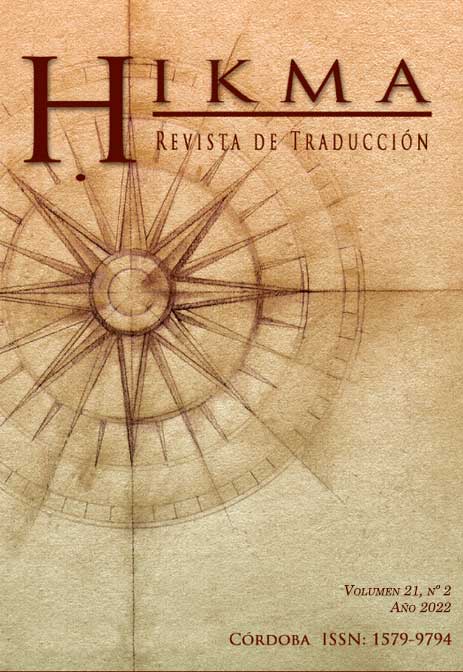Translation Project management: a pending matter within the curricula of the Translation & Interpreting Degree in Spain
Main Article Content
Abstract
Nowadays, the role of the translator project manager is still quite unknown by the most part of the graduates from the Translation and Interpreting degree in Spain. However, owing to the peak of the field and to the considerable volume of translations within the translation market, this role is becoming even more necessary. For this reason, working as a project manager turns out to be one of the most demanding positions within the market, even though their responsibilities and competences are sometimes still unknown for the new generations of translators.
This could be the result of the existing limitation of time and ETCS credits in which the current curricula of the Translation & Interpreting degree are framed in Spain. Consequently, the training over translation project management go sometimes unnoticed.
This paper presents the results of a survey carried out among 41 graduates from the above-mentioned degree who work or have worked as a project manager to determine to what extent they have the necessary competences as well as the knowledge to do so. Finally, the current offer of this issue within the Translation & Interpreting degree as well as in the postgraduate studies in the Spanish universities is analysed to determine whether the lack of this preparation, were it to exist, could be supplied afterwards.
Keywords: Project Management, Survey-based study, Translation & Interpreting degree, Curricula, Postgraduate studies
Downloads
Article Details

This work is licensed under a Creative Commons Attribution-NonCommercial-ShareAlike 4.0 International License.
Authors who publish with this journal agree to the following terms:
1. Authors retain copyright and grant the journal right of first publication with the work simultaneously licensed under a Creative Commons Attribution License that allows others to share the work with an acknowledgement of the work's authorship and initial publication in this journal.
2. Authors are able to enter into separate, additional contractual arrangements for the non-exclusive distribution of the journal's published version of the work (e.g., post it to an institutional repository or publish it in a book), with an acknowledgement of its initial publication in this journal.
3. Authors are permitted and encouraged to post their work online (e.g., in institutional repositories or on their website) prior to and during the submission process, as it can lead to productive exchanges, as well as earlier and greater citation of published work (See The Effect of Open Access).

